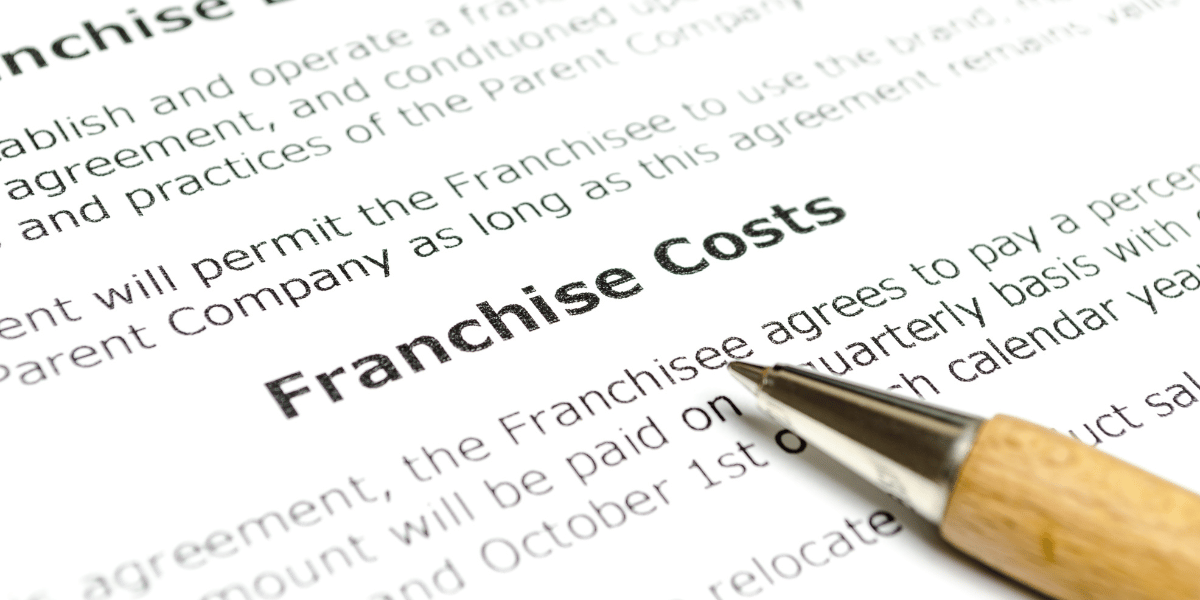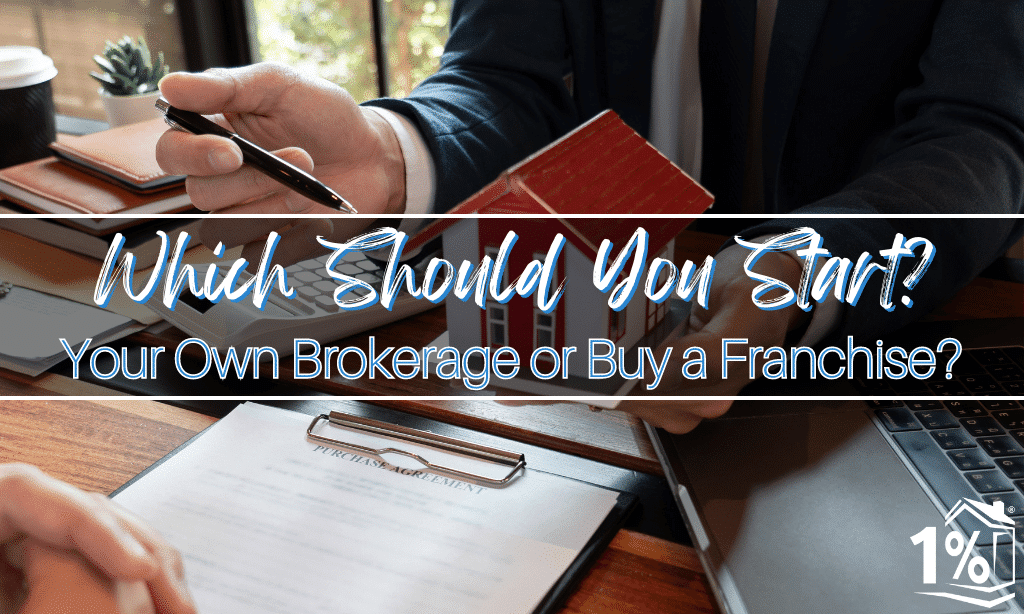If you’re considering venturing out on your own to start a brokerage, you’re not alone. It seems more than ever that real estate professionals are taking the plunge and going into business for themselves. Once you’ve decided that your own brokerage is the route you’ll take, there’s one major consideration to think about. Should you start your own brokerage or buy a franchise?
Unfortunately, we can’t make that decision for you. But, we can help! We’ll present you with some questions that you’ll need to answer for yourself before you choose. In addition, we’ll talk about the differences between the two, and the benefits and drawbacks of each.
Starting a real estate franchise
When it comes to getting your new business off the ground, a franchise is hard to beat. However, that’s not to say it’s the perfect model for everyone. Let’s take a look at real estate franchises and some of the things you’ll want to consider.
Why buying a franchise makes sense
Without a doubt, there is no faster and easier way to become a successful real estate broker, and with less risk. Franchise companies offer a proven model, with built in brand recognition. In most cases, the processes and procedures are already in place, as well as training and systems.
From training and software to marketing tools and a built-in referral network, the list of benefits goes on and on. All of this can be invaluable for a new business owner that’s just getting started.
Another thing to keep in mind when starting any business is what will happen should you decide to move on from it. Typically, there are real estate agents and brokers champing at the bit to take over a specific territory when it becomes available. What does this mean for you?
Chances are, you’ll be able to sell your franchise brokerage faster and for more money than an independent brokerage. Just like you, they’re looking to take advantage of all the benefits a real estate franchise brokerage has to offer. Plus, you’ll have the proven track record of a successful business!

Cost of a franchise
The cost of a real estate franchise can vary greatly. There are several factors that can determine how much money you’ll need to get your brokerage started.
First and foremost, there’s going to be an initial franchise fee. For most franchisors, this fee can be anywhere from $10,000 to $50,000.
In addition, there are recurring royalties. There are different ways that real estate companies may charge royalties from their franchisees. Some franchisors charge a percentage of the gross commissions a broker brings in. Typically 3%-6% of what the broker makes per transaction. Others charge a flat of anywhere between $25-$400 per agent. These royalties can be passed along to the agents to pay.
Aside from the recurring charges, a franchisor can dictate just about every aspect of an office. The location and size, the signage out front, and even the furniture. Not to mention licenses for any software systems they may require, mandatory training for agents, and marketing costs. While it’s difficult to put an exact number on this, franchises have been known to cost up to $350,000 to get started.
It’s important to remember, however, that not all franchisors are the same. While there is a franchise fee and recurring royalties, 1 Percent Lists doesn’t even require a physical office. This can wind up saving you a tremendous amount of money in startup costs and overhead.
Additional factors to keep in mind
- Requirements – Many franchisors have requirements and qualifications that you must meet in order to be considered for a franchise. These can include business experience, past real estate achievements, and even your net worth.
- Commitment – Franchise agreements typically last five to twenty years with renewal fees at every interval. The renewal fees typically amount to 50% of the initial franchise fee. This should be considered when planning your long-term financial goals.
- Territories – Most real estate franchise brands have specific territories, particularly in major cities, to avoid competition within the same area.
Starting an independent real estate brokerage
The rules that you have to follow are one of the most common complaints about franchise ownership. Many of these rules may seem unnecessary, but exist to maintain a cohesive brand and prevent conflicts between franchise owners. These rules can range from the amount of agents a franchise must have to where you can have your office.
These regulations don’t apply to independent brokerages. You are free to have as many or as few agents as you’d like. This allows you to grow your brokerage at your own pace. You can also take advantage of opportunities such as opening new offices where you like.
Independent brokerages also allow you a level of creativity. You can create your own brand without being bound by the brand or trademark of the franchise. If you are looking for that freedom, then starting your own independent brokerage may be the best option.
With some real estate franchise companies, you may not be bound to all of these rules. With 1 Percent Lists for instance, there is no minimum number of agents you’re required to hire and maintain. This gives you the option to start your brokerage by yourself with no additional staff, should you choose. This saves the time and money you’d usually have to spend on recruiting, hiring, and training.

Considerations
When you’re starting an independent brokerage, you’re far more limited with the amount of resources available to you. By purchasing a franchise you’ll have agent training, marketing materials, and support available to you. Not to mention a built in digital presence.
In addition, it’s difficult for startup brokerages to compete with the larger names without brand recognition. This can affect everything from acquiring clients to recruiting agents to work for you.
If you’re looking to grow your brokerage, then you’ll need to recruit agents. And lots of them. Without the resources available from a franchisor and their branding, this is easier said than done. Many agents, particularly ones just starting out, want the sense of security that comes from a well known company.
In general, while it could cost you less to start, there is a lot more risk involved in starting an independent brokerage.
Bottom line
When you decide to venture out on your own, there are many things you should consider. Your brokerage’s success will depend on the decisions you make today.
Do your research. Make a list of the pros and cons of opening your own brokerage. Also, look for franchise opportunities in your area. The time you invest upfront will pay off in the long-term.

